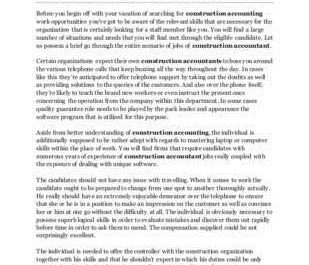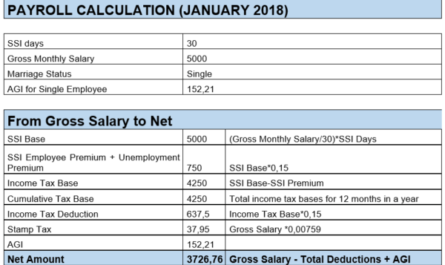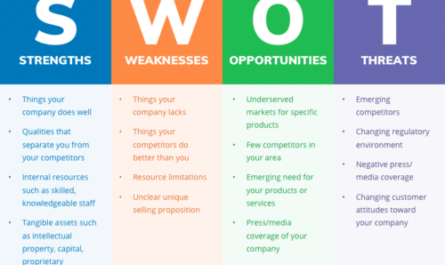Private equity funds are the primary vehicle used to develop the economies of many countries to help start-ups or high-risk companies gain a foothold in the market. It is the collective capital provided to investors and private companies to develop their activities. It is mainly used for investments in private or unregistered companies. Private equity involves creating a pool of cash that can be used to change a company’s position in order to generate more profit, or to help the company invest in the development of new product lines and technologies.
It also helps organizations increase their working capital and strengthen their leadership and membership. Unsurprisingly, many accredited and non-accredited wealthy investors take this seriously and you can join the bandwagon as well. While private equity funds are not intended for small investors as they involve investments of around $ 1 million or more, the return on investment is still extremely reassuring, especially if you invest correctly. This is why you choose a direct fund manager. the investment must be proven and reliable. This is necessary because private investors are passive investors.
If you have huge sums of money and you really want to invest in private equity funds and get a great return on your investment, the following options will help you. to start.
How To Invest In Private Equity Funds A Beginner’s Guide
1. Start with the Private Equity Fund Club
You may have heard of investment clubs; so why aren’t you one of them? There are different private investment clubs you can get started with. Since Equity Fund is committed to pooling funds so that they can cover the amount required for such an investment, starting with family and friends who can afford that amount can be a good start. You can also ask or find big investment clubs around you and apply to join them.
2. Private Equity Trading Fund (ETF)
You can also buy ETF stocks. Buying these kind of stocks will help you bypass the strict requirements placed on individual investors.The advantage of buying an exchange traded fund is that it helps you keep up with the index of publicly traded companies that invest. in private actions. With this type of investment portfolio, you should know that your broker will charge service fees for all of your transactions with them.
3. Invest in a fund of funds
A fund of funds is simply a pool of cash from different investors that is managed by a company that is expert in evaluating investment options and knows where to invest and the amount allocated to private equity funds. This type of investment portfolio helps organizations increase their return on investment. While the minimum investment requirement for a fund of funds is $ 100,000, the fact remains: with a fund of funds, you have the flexibility to invest in a variety of companies that interest you. Also, if you really want to minimize the risk associated with a Private Equity fund, investing in a fund of funds will be your best bet. Please note that you will be charged different fees for the fund management fund.
4.Special Purpose Acquisition Companies (SPAC)
The special thing about this form of investment portfolio is that you may not have options to buy from different companies. In Special Purpose Corporations (SPACs), you will only be allowed to invest in one business at a time. Special Purpose Corporations (SPACs) give you access to public capital investments, which allows you to invest in private equity funds in undervalued private companies.
5. Venture capital
Venture capital provides equity capital to start-up and early stage businesses. The clues that make these companies suitable for venture capital are their potential for long-term profitability. In some cases, this potential may be hidden, but with the right analysis and the right tools, experts can predict whether a start-up can become profitable. However, we cannot rule out the possibility of losing investments with certain startups or growing companies.
6. Buy-back fund
Investing in this type of private equity fund means that you are investing in an established business that is in a financial or management crisis that requires outright buyout to avoid liquidation so that it stays in business. In this type of equity investment, part of the funds invested in the company are used to repay existing debts.
8.Growth capital
In the case of growth capital, you will provide funds to help existing and proven businesses rise above the level at which they operate. Funds can only be invested if all the necessary assessments and audits have been carried out and it is evident that if funds are introduced into the business, they grow and become very profitable.
9. Get the best inventory manager
It should be noted that partnerships with private equity funds are generally a fixed-term investment portfolio with a minimum duration of 10 years and there is always room for renewal. Your preference for a wealth manager should be properly assessed and verified to eliminate unnecessary and avoidable risks and to ensure you get a good return on your investment.
If you have a large amount of money and can afford to invest at risk over a long period of time, you should consider investing in private equity funds. There is no doubt that the risk associated with investing in equity funds is high, as an investor can lose all of their investments if they are wrong, but you should also know that the annual return on investment you can get by assessing the risk is considerable. higher .
We believe that if you take the time to explore the 7 key areas of private equity described above and do your own research, you will be knowledgeable and well-oriented in your quest to invest in private equity funds. capital investment.








































